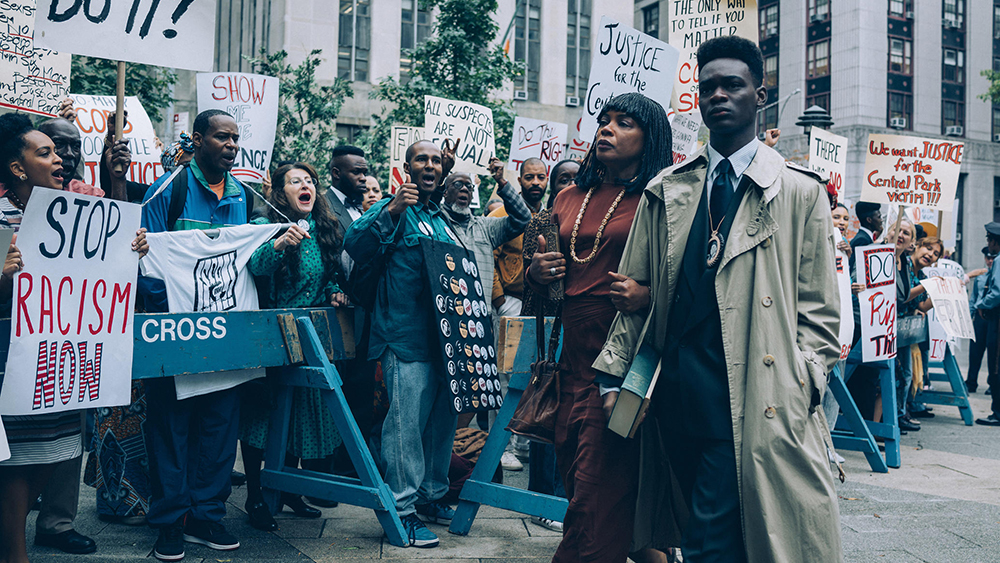This piece was submitted from a member of our enthusiastic community of readers. If you’re interested in sharing your opinion on any cultural, political or personal topic, check out our how-to post to learn more.
Black writers and directors have released some amazing work in the last five years. It seems creators like Shonda Rhimes, Issa Rae, Jordan Peele, Ryan Coogler and Ava DuVernay simply cannot fail when it comes to creating entertainment for and about Black people. A great example is DuVernay’s newly released Netflix miniseries, When They See Us. According to many, through four episodes DuVernay paints a very accurate picture of the Central Park Five — the five New York City Black boys wrongly accused and convicted for a crime they did not commit in 1989.
When they See Us is already getting critical acclaim and has quite the buzz all over social media for the captivating and heart-wrenching storytelling that unfolds in during episode. Every tweet and status I see in regards to the series draws me closer to opening up somebody’s Netflix account to bear witness to what I know is cinematic gold — because everything DuVernay makes is cinematic gold.
Then I stop. I can’t bring myself to watch it.
It’s the same reason I still haven’t watched Fruitvale Station, or the reason why I skip pass every Facebook video of any police interaction with Black people. As a young Black woman living in Flint, Michigan, with a queer identity and bunch of student loans, my cup runneth over and over and over with social injustices. At this point in my life, it's actually harmful to my mental health to subject myself to any more media that shows the diaspora being treated worse than dirt for no reason other than the skin we are born in.
DuVernay is a great, if not the best, visual storyteller. If you’ve seen any of her work, you know she knows what she is doing. Knowing the quality of her past works, I can confidently assume the following about When they See Us: it is well written, accurate to the events that took place in 1989, well-directed and the actors are bringing the truth to the characters. And judging from clips and photos, the high cinematic quality of the series itself, aside from the subject matter, is enough to trigger something in me that I am not mentally prepared for.
The truth about the five boys' stories (who are now grown men) deserves to be out there. Black stories portrayed on television and film deserve Black directors and writers who will care for the truth of the story rather than using our pain to make millions. We, as a race, deserve quality, profound entertainment that isn’t centered around men in dresses or a Black woman’ desperately trying to find a partner. The world deserves When They See Us, I, unfortunately, simply can’t watch it.
I know that there are a lot of people, like me, who are not mentally ready to watch this series but still want to support Black television and film. Here are a some ways you can do just that:
1. Open up When They See Us on your streaming device just before you leave for work, and let it autoplay through the series while you are miles away from it. DuVernay still gets her well-deserved views and support without any emotional strife on your part.
2. Check out some of DuVernay’s works of fiction such as Queen Sugar, which is a little emotionally heavy, or A Wrinkle in Time. You still get to support the acclaimed director, but you’ll have a lot more fun doing it this way.
3. Check out other Black shows and movies on Netflix. A lot of people, including myself, have many opinions about Spike Lee’s She’s Gotta Have It. But love it or hate it, it's still quality Black entertainment based in one of the major hubs of Black art, Brooklyn, New York. Lee’s latest sci-fi flick, See You Yesterday, is on Netflix as well, and it is Black twitter approved, so I highly recommend.
4. A plethora of classic Black movies are making their way to Netflix this year, including Baps and Carmen: A Hip Hopera. You can binge out on those while getting your 1990s/2000s nostalgia on.
No matter what you decide to do, continue to support Black art. We get our lives trampled on one way or another in this country, but Black art, television, film, music, etc. is something that they will never be able to take away from us.
